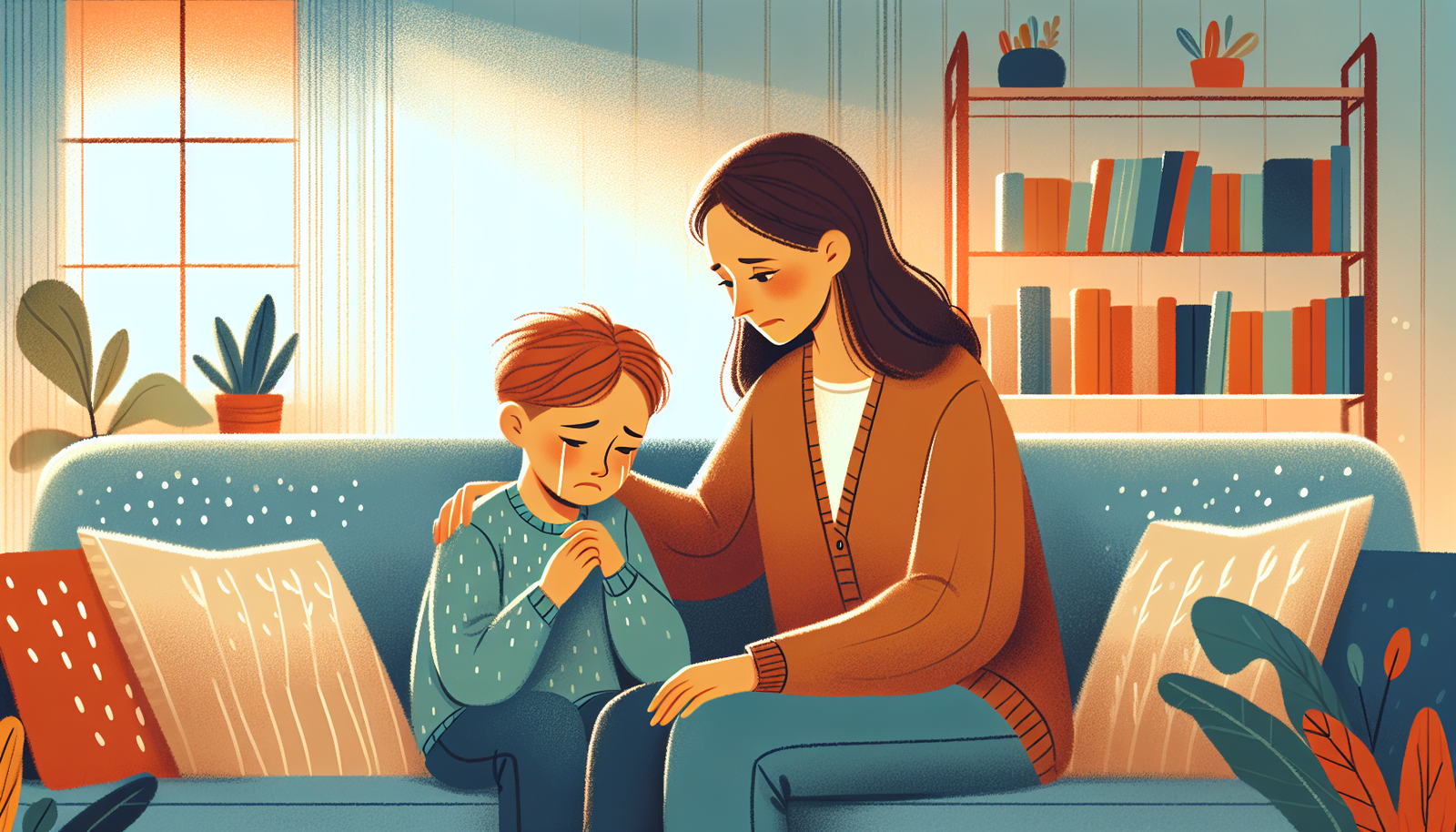Rethinking Parenting: The Common Mistake We All Make
Every once in a while, I hit a parenting revelation that shakes my world as much as it enriches it. An insight from a top child psychiatrist made me stop in my tracks and re-evaluate one of the most frequent words I throw at my three kiddos—“stop crying.”
The Unintended Impact of Silencing Tears
As a mom of three spirited kids, I’ve learned tears can flow as frequently as laughter.
But sometimes, the allure of peace (or maybe just silence) leads me to utter the words “stop crying.”
What I recently discovered, however, is that this seemingly innocent phrase could be doing more harm than good.
Here’s why:
- It invalidates emotions.
- It hinders emotional intelligence.
- It might cause long-term distress.
It’s Not Just Crying – It’s Communication
The idea isn’t just about stopping the tears—it’s about encouraging kids to express themselves and feel heard.
Every tear and sniffle is a tiny plea to understand their world better. Imagine if every heartfelt conversation you tried to have was brushed off with a dismissive “stop talking.”
It’s all too easy for adults to forget that tears can be a child’s version of opening up.
What We Can Do Instead
Switching gears as a parent isn’t always straightforward. But, oh, how transformative it can be! Here’s how we can create a more supportive environment for our kids:
1. Validate Feelings
Instead of dismissing their tears, why not try acknowledging them? Simple phrases like, “I see you’re upset,” or “That seems tough,” allow our children to feel seen and understood.
2. Encourage Dialogue
Open-ended questions work wonders. Ask them, “What made you feel that way?” or “How can I help?” And listen—genuinely.
3. Give Them Space
Sometimes a child may need their ‘cry-time.’ Offering a safe space to express their emotions can be more comforting than we realize.
4. Teach Emotional Literacy
Discuss emotions using books or storytelling. It could nurture a child who understands their emotional spectrum better.
Learning and Growing as a Parent
If there’s anything motherhood has taught me, it’s that growth is a part of the journey.
Implementing changes is as much about shifting our mindset as it is about our children’s.
It’s essential to remember that progress isn’t perfection—it’s about taking those tiny steps toward more empathetic parenting.
Here’s what I remind myself: next time James, my youngest, comes to me with those crocodile tears, I’ll remind myself to welcome the story behind them.
The Real-Life Challenges
Finding the Balance
Let’s be real. In the chaos that parenting often is, finding time to transform our approach feels like yet another thing on our endless to-do list.
But even in the maelstrom of a rushed morning or a bedtime meltdown, pausing to acknowledge can make all the difference.
Breaking the Habit
Deprogramming isn’t instant. I slip, and regrets follow. But each time I correct and redirect, I count it as a win.
Why It’s Worth the Effort
Our mission through these delicate years? To raise resilient and emotionally intelligent kids.
Admittedly, we are their mirrors, reflecting back the understanding and acknowledgment they naturally deserve.
By encouraging emotional honesty, we’re gifting them a lifelong skill that will tether them through life’s highs and lows.
The Road Ahead
Will there be bumps? Absolutely. But isn’t it reassuring to realize that acknowledging our child’s tears costs us nothing, yet offers them so much?
A Community of Learning
Us moms often get caught in the crosshairs of unsolicited advice and unending childcare theories.
But amidst it all, I find solace in the fact that we’re a part of a community striving to improve.
Every story and experience shared helps us build a better understanding.
So, fellow mothers, let’s continue sharing these parenting journeys, ups and downs alike.
Together, we’re crafting the kind of empathetic and nurturing environment our children deserve—even if it starts with embracing their tears instead of shushing them.
Conclusion
Parenting is like the ever-changing ocean—constantly rippling and shifting.
Each wave, from laughter to tears, is a chance for growth. It took a mental pivot, a reminder of patience and understanding, to see the wisdom in not silencing the cries.
Let’s allow the voices of our children—their giggles and wails—to shape not just their world but ours too, one nurturing whisper at a time.

